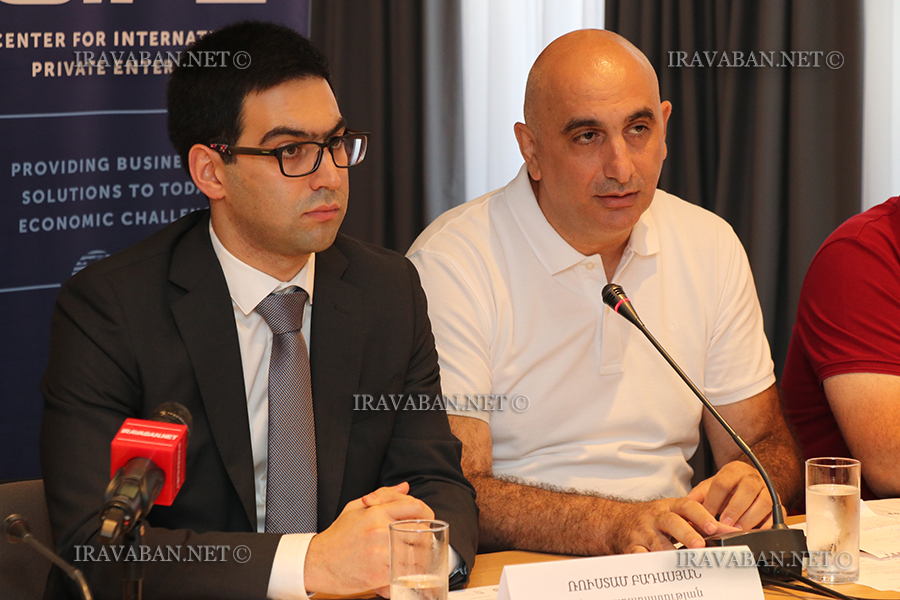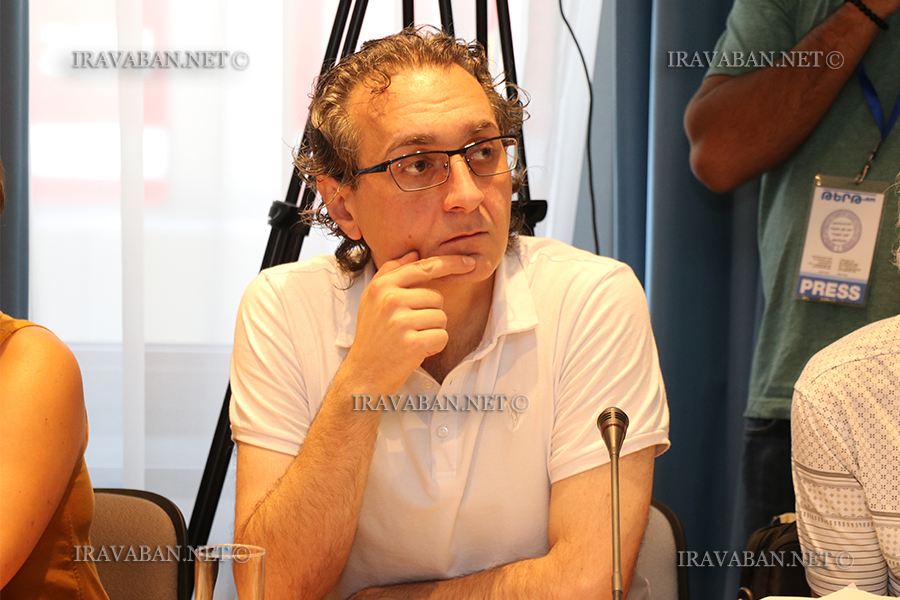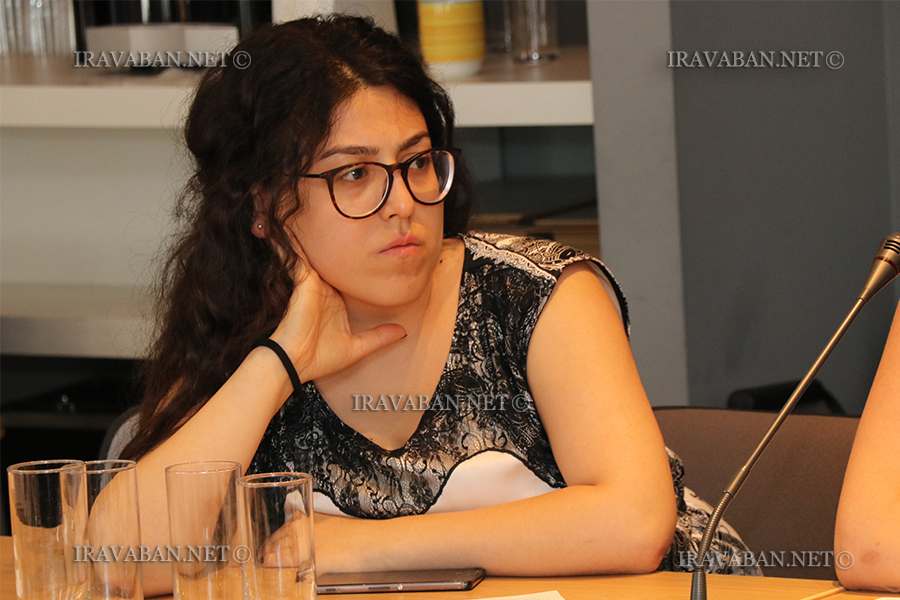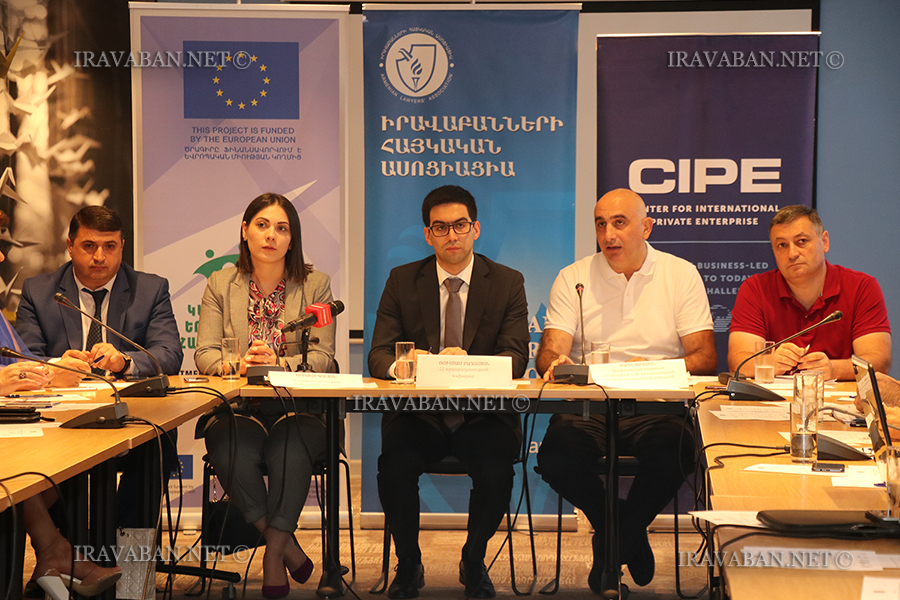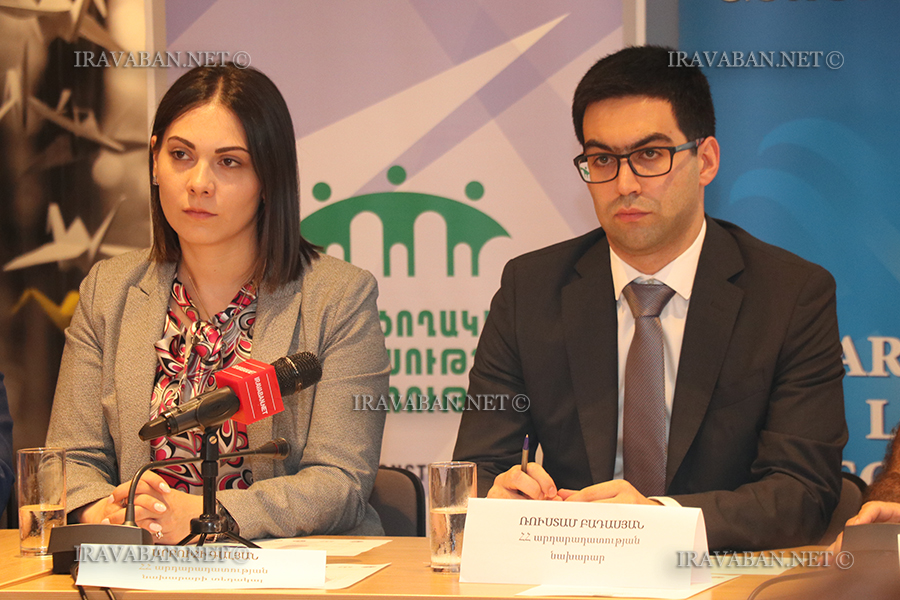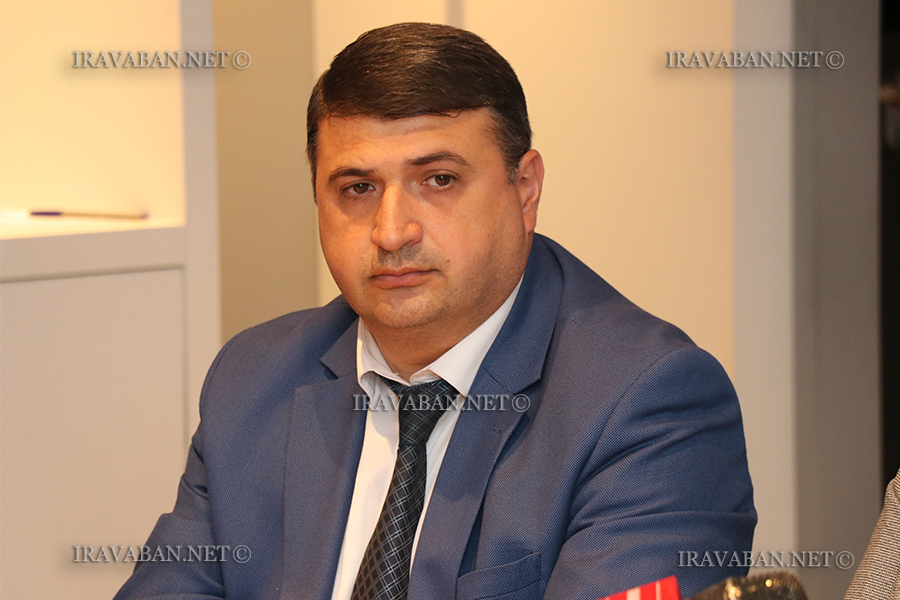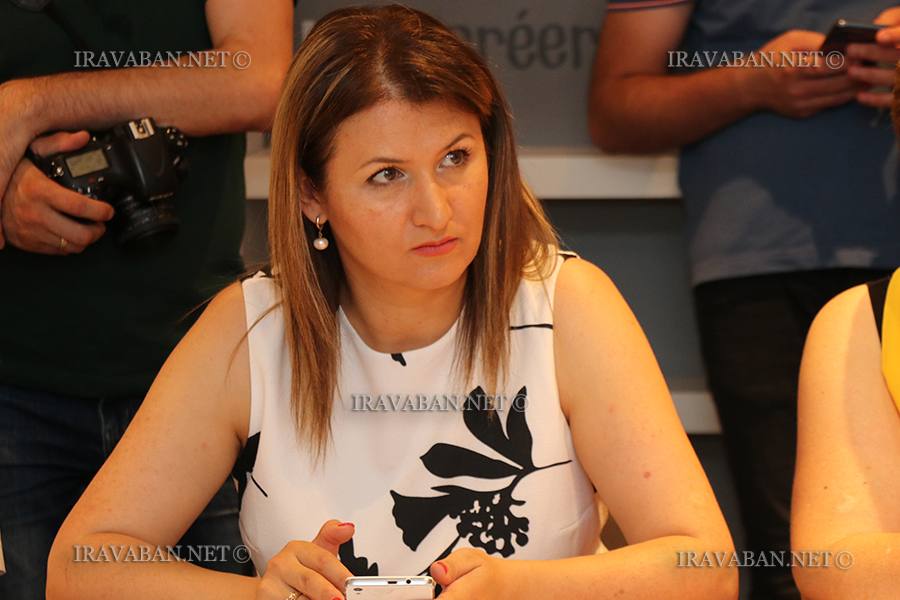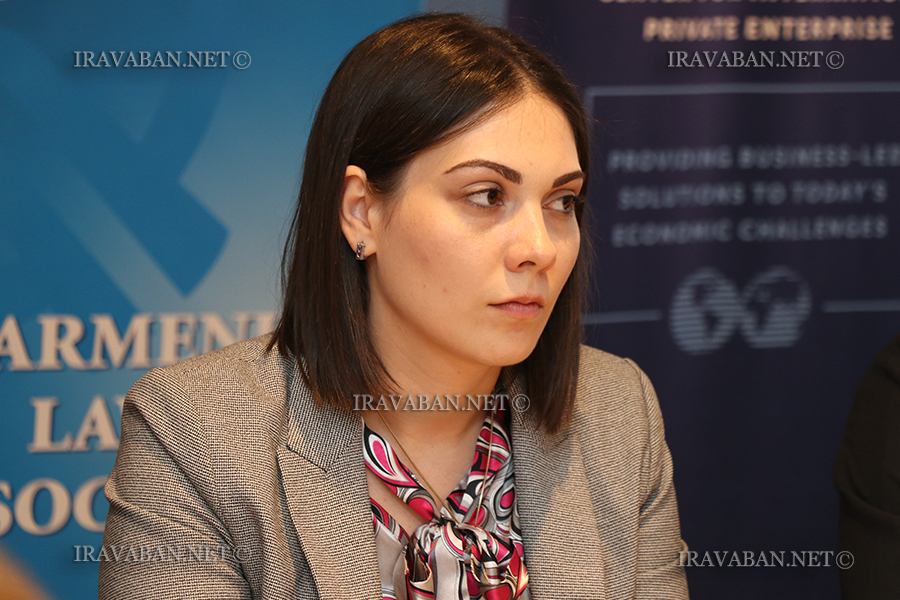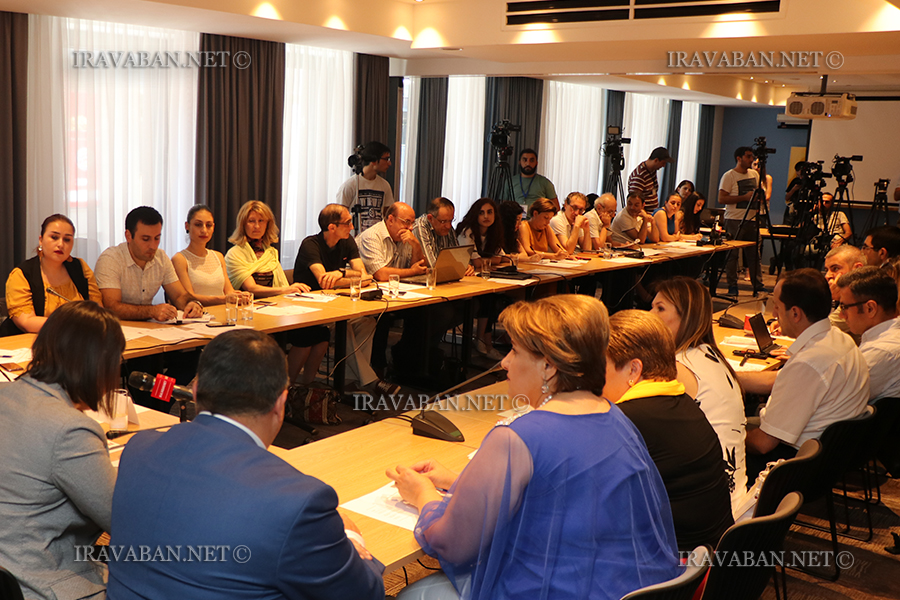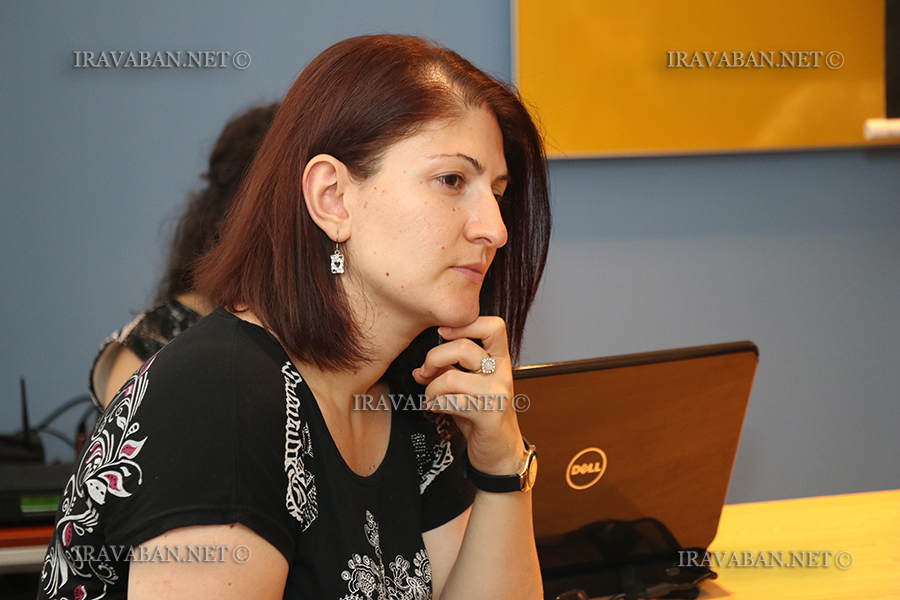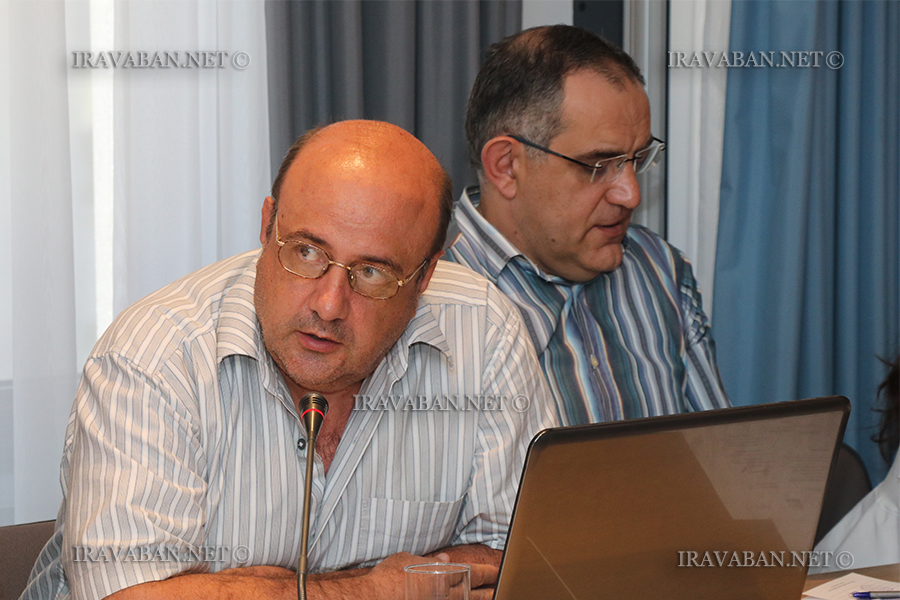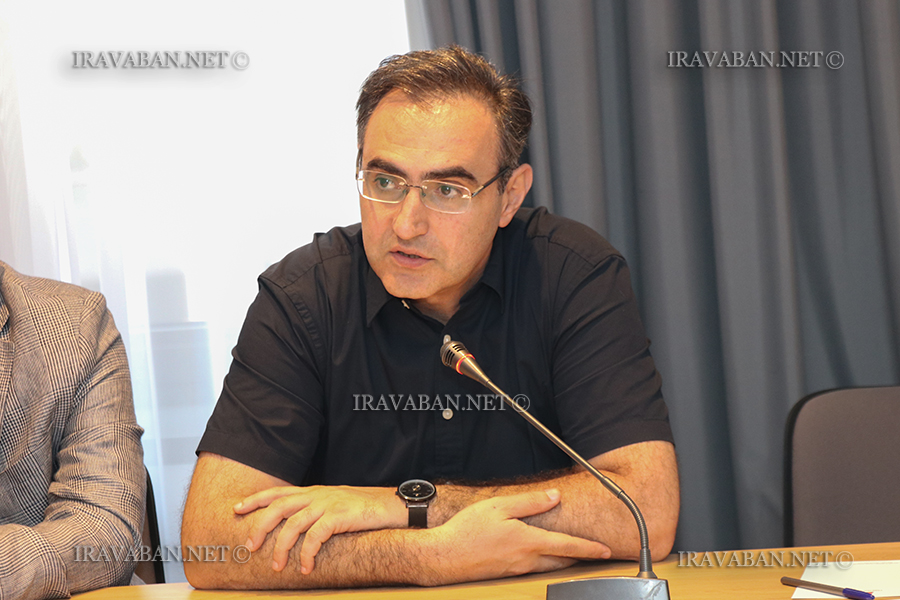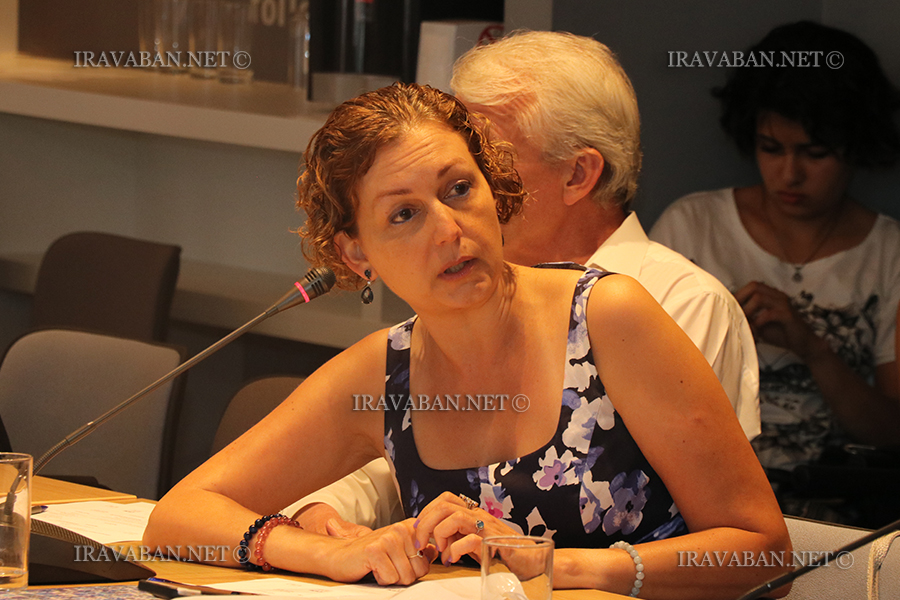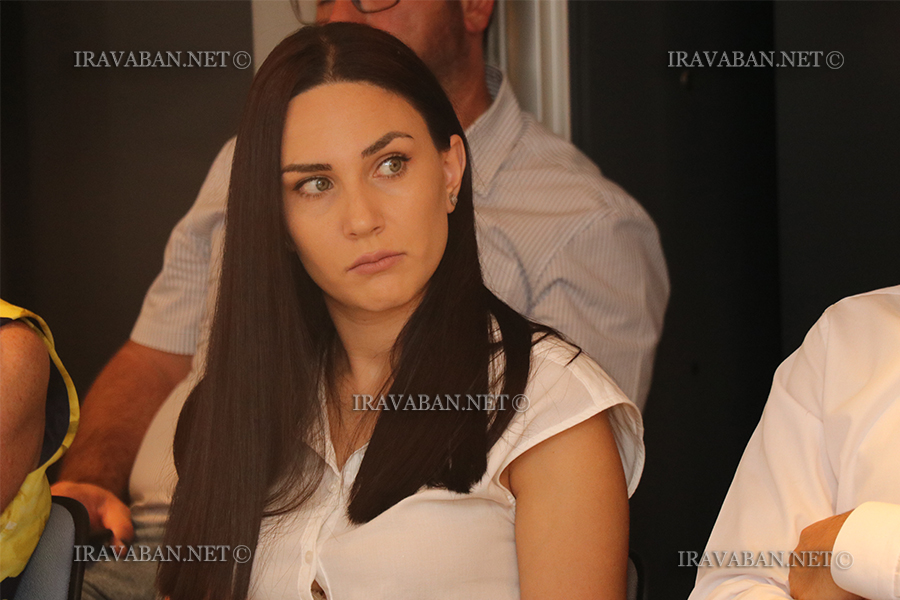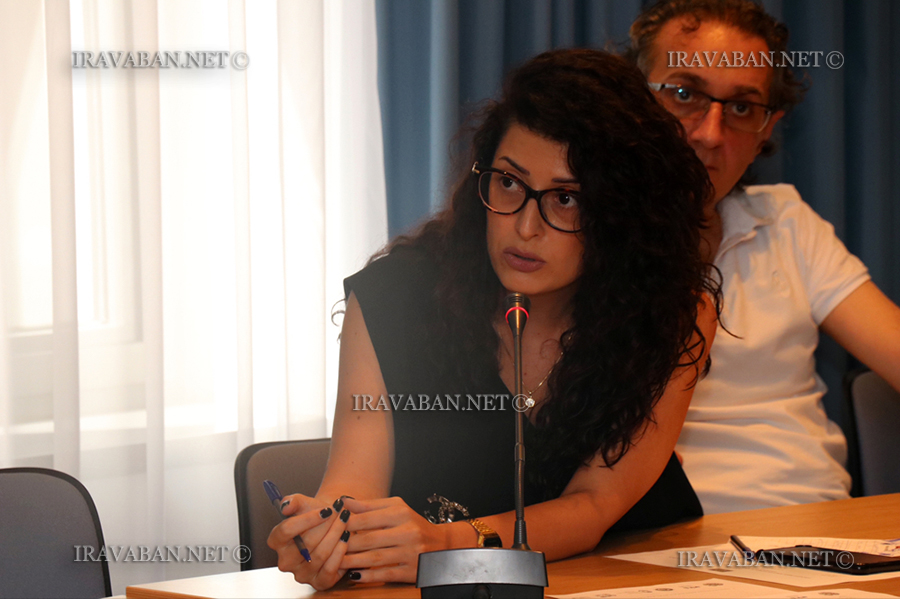02.08.2019
On August 1, the discussion of the Draft Anti-Corruption Strategy of the Republic of Armenia and its Implementation Action Plan for 2019-2022 with participation civil society organisations was held in Yerevan.
The discussion was organised by the Armenian Lawyers’ Association, CSOs Anti-Corruption Coalition of Armenia and the Committee on State and Legal Affairs of the Public Council and the Ministry of Justice of the Republic of Armenia within the framework of EU funded “Commitment to Constructive Dialogue” project and Center of International Private Enterprise funded "Promotion of Corruption and Reforms. Armenia "project.
"This meeting will summarize a series of discussions with specialized civil society organisations, groups, businesses and local authorities". Mr. Karen Zadoyan, Coordinator of Secretariat of the CSO Anti-Corruption Coalition, mentioned in his opening remarks.
“We, as a coalition of civil society organisations, have proposed an Armenian model of combating corruption because we find that the international experience is very good to learn lessons so that we do not duplicate the failed examples and localize the successful ones. In the first circle, it consists of a body we call the multi-functional body, which include the three components of fighting corruption: anti-corruption education, corruption prevention and the inevitability of punishment. In the second circle is the specialized body of the prosecutor’s office. The third circle is the judicial system. We believe there should be specialized courts, because currently there is mistrust in the judiciary,” Karen Zadoyan said, presenting the key components of the strategy.
Mr. Rustam Badasyan, the RA Minister of Justice welcomed the discussion, thanking those civil society organisations that organised joint discussions with the Ministry. “This is not going to be a robust document and is subject to constant change, so if we see that we have not planned something in a few months or failed to give a full financial assessment, we can revise it and change it, of course, not including conceptual issues,” the Minister noted that this strategy would be different from the previous ones.
“The Public Council has been with anti-corruption civil society organisations and experts since its inception and is now ready to provide its platform for such discussions, development and reviewing drafts, and recommendations,” Mr. Hovhannes Hovhannisyan, a member of the Public Council said.
Ms. Srbuhi Galyan, the Deputy Minister of Justice, presented the Drafts of the Anti-Corruption Strategy and its Implementation Action Plan for 2019-2022 to the attention of the.The latter stated that, among other reforms, the strategy also envisages the prevention of corruption in the private sector, which will establish criminal liability for legal entities and the introduction of anti-corruption compliance programs in the business organizations and organizations of public significance.
Afterwards, the heated discussion followed. Mr. Hakob Avagyan, the representative of "SME's Association" NGO, asked a question to the Deputy Minister of Justice, Ms. Srbuhi Galyan: "You have mentioned in your speech that the criminal liability of the legal entities will be provided. Is this a new concept? How a legal entity will be liable? Let me introduce our approach. It is necessary to liberalize offenses and emphasize the idea of damage restoration by legal entities."
In response to Mr. Hakob Avagyan's question, Ms. Galyan mentioned: "The criminal liability of legal entities exists in several foreign countries. The source of this legal concept is the Anglo-Saxon law. It had been operating there successfully for a couple of centuries. Afterward, continental law system countries had adopted the criminal liability of legal entities. Our country is currently stating the idea that a legal entity shall be a subject to criminal liability instead of being a subject to a crime. A number of legal experts and lawyers oppose that this approach contradicts to the core principles of personal responsibility and the responsibility on guilt basis. In our country, a legal entity will be responsible for a specific offense committed by a natural person. Eventually, the liability of the legal entity will be considered as a consequence. This concept will be a criminal-law measure to apply limited penalties, mainly with the possibility of a fine. Indeed, the restricting certain activities for a certain period, the banning certain types of activities, the banning certain activities of international organizations in the territory of RA, the banning the participation in the public procurement process, I list these types of punishments that it will be evident the scope of criminal liability. The most severe punishment, of course, is the dissolution of an entity. At the moment, the "guilt" of the legal entity is essentially the "fault" of the individual. To put in another way, the criminal liability of the legal entity shall arise from the "fault" of the individual/natural person's responsibility. As well as, I would like to point out that for certain specific offenses the case can be the liability of the legal entity itself, particularly the crimes against the security of the environment and the economic activity. What concerns the clause 205 of Criminal Code which regulates the non payment of taxes, this is problematic. However, it does not mean that the incentive rule in the current Criminal Code, under which a person compensates damages, pays taxes, and is considered to be exempt from criminal liability, would have not to be applied. Well, it will be this way: no separate crimes will be provided for legal entities. A separate chapter will be provided in the General part of the Criminal Code. The rules set out in the Special part will apply to the General part. The sanctions will be very limited that will be mentioned in the General part of the Criminal Code."
Mrs Lusine Nalbandyan, the expert-lawyer of "Armenian Lawyers' Association" NGO, spoke up about the following: "There is a provision in the draft Criminal Code that criminal liability of legal entities can be not applied if it is proven that the latter has taken measures to prevent any criminal corruption behavior. I suggest to take into consideration that such measures can be the Anti-Corruption Compliance program. This program is aimed at improving the internal business environment in certain organization and it can be expanded quite rapidly. If we manage to put the Anti-Corruption Compliance program on a legal basis, it can work very effectively, as it is proved under the international experience.".
Mrs Mariam Zadoyan, an expert of the Anti-Corruption Coalition pointed out: "My concern is about corruption risks in the private sector. In international criminal law practice sanctions are often aimed at not destroying the entities' existence, but instead are aimed at having a major preventive role. In France and Germany, different types of liability include measures such as administrative and judicial surveillance of commercial company. As a recommendation, we recommend to consider the enlargement of liability measures, including preventive ones. Indeed, the Anti-Corruption Compliance program can be considered one of the preventive ways while applying liability means."
Notably, similar discussions have already been organised in Gyumri, Gavar, Vanadzor and Armavir.
